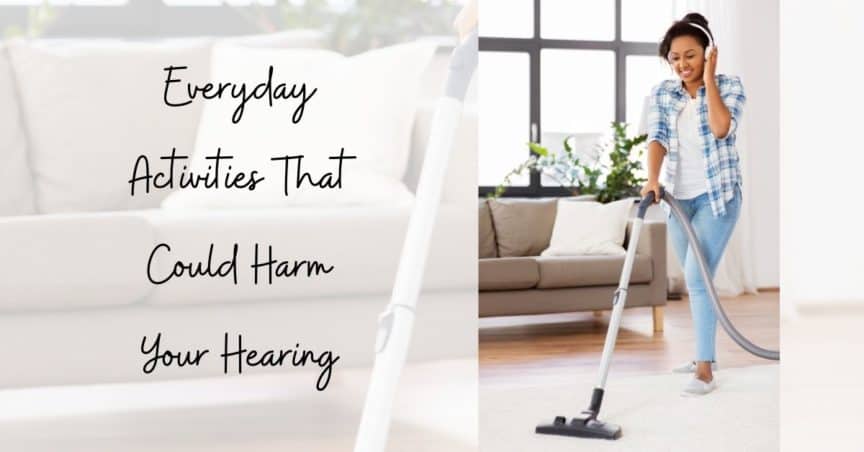- How to Care for Infants With Hearing Loss - April 15, 2024
- Hearing Aid Tips for Runners - April 5, 2024
- Overcoming Misconceptions Around Hearing Aids - March 27, 2024
There are about 48 million people in America today who suffer from hearing loss. About 15% of people over the age of 18 report that they have trouble hearing. While age-related hearing loss is expected to reduce our hearing ability at some point in our lives, we don’t need to add to it with noise-induced hearing loss. The better we can protect our hearing throughout our lives, the less severe we can expect our hearing loss to be later in life.
Let’s take a look at some of the causes of noise-induced hearing loss and what we can do to protect ourselves from it.
Earbud and Headphone Use
This one is especially problematic for younger people and city-dwellers. We often use our earbuds to listen to music, the news or podcasts while roaming around the world, which means the audio we’re putting directly into our ears needs to be at least a little louder than the sounds around us. If you’re listening to earbuds on a subway train, you know that your volume level is enough to overcome the sound of the train.
Subway train noise levels vary from 80 to 100 dB (decibels). It takes about 8 hours of exposure to noise levels at 85 dB to cause some permanent hearing loss, but only 15 minutes at 100 dB. When you’re already around all this noise, and then adding the sound from your earbuds to it, it’s a recipe for hearing loss.
It doesn’t always take a subway train to cause this additive sound level problem. Think of all the situations when you’re listening to earbuds in somewhat noisy environments. You might exit those situations and continue listening to your earbuds at the same level they were at while you were trying to defeat that ambient noise, too.
It’s important to keep your earbuds or headphones at a reasonable level: just enough to hear what’s going on with a relatively quiet background. If you’re often listening in loud environments, consider getting some noise-cancelling headphones or earbuds. These will help reduce or remove the consistent loud sounds from the environment so you can enjoy your media without causing permanent damage to your ears.
Concerts and Music Festivals
Some people think that an evening or a weekend of exposure to loud music is okay, but remember that 100 dB of volume is only safe for 15 minutes. Most music events last a little longer than that! It can be hard to remember how important hearing protection is when you arrive at the concert or festival and see so many people who are neglecting to protect their ears. This culture of unprotected hearing can make one think, “All these people can’t be hurting their ears, can they?” In fact, they are. Get ahead of the curve and always wear earplugs when you’re at a live music event.
The Wrong Kind of Earplugs
So you’ve decided to protect your ears and you start carrying disposable foam earplugs everywhere you go, in case you end up in a loud sonic environment. Your coworker invites you to a show after work and you go straight there, feeling good about your decision to start carrying earplugs.
But at the concert, you put them in and everything sounds bad and muffled, and when you try to talk to your friend you can’t make out what they’re saying at all. You think, “These things aren’t worth it,” and throw them out, hearing the rest of the concert with no hearing protection. After the show, your ears ring for a while but you figure it’s okay once in a while.
Don’t give up on protecting your ears! The foam earplugs may have been too much; they were probably designed for maximum attenuation, for factory floors or shooting ranges. There are models of earplugs available that attenuate to a lesser degree, and that are not disposable, that maintain a better semblance of the frequency spectrum so you can still make out the nuances of music. If you’re really serious about music listening, you might consider a custom-molded set of earplugs available from an audiologist that can attenuate just the right amount and maintain the balance of frequencies just as if your ears were unprotected.
If you think you might have hearing loss from exposure to noise, make an appointment for a hearing test today. You might be a good candidate for custom-molded earplugs, and you should start keeping track of your hearing loss profile now so you can make sure you’re not losing any more hearing due to inadequate protection.

